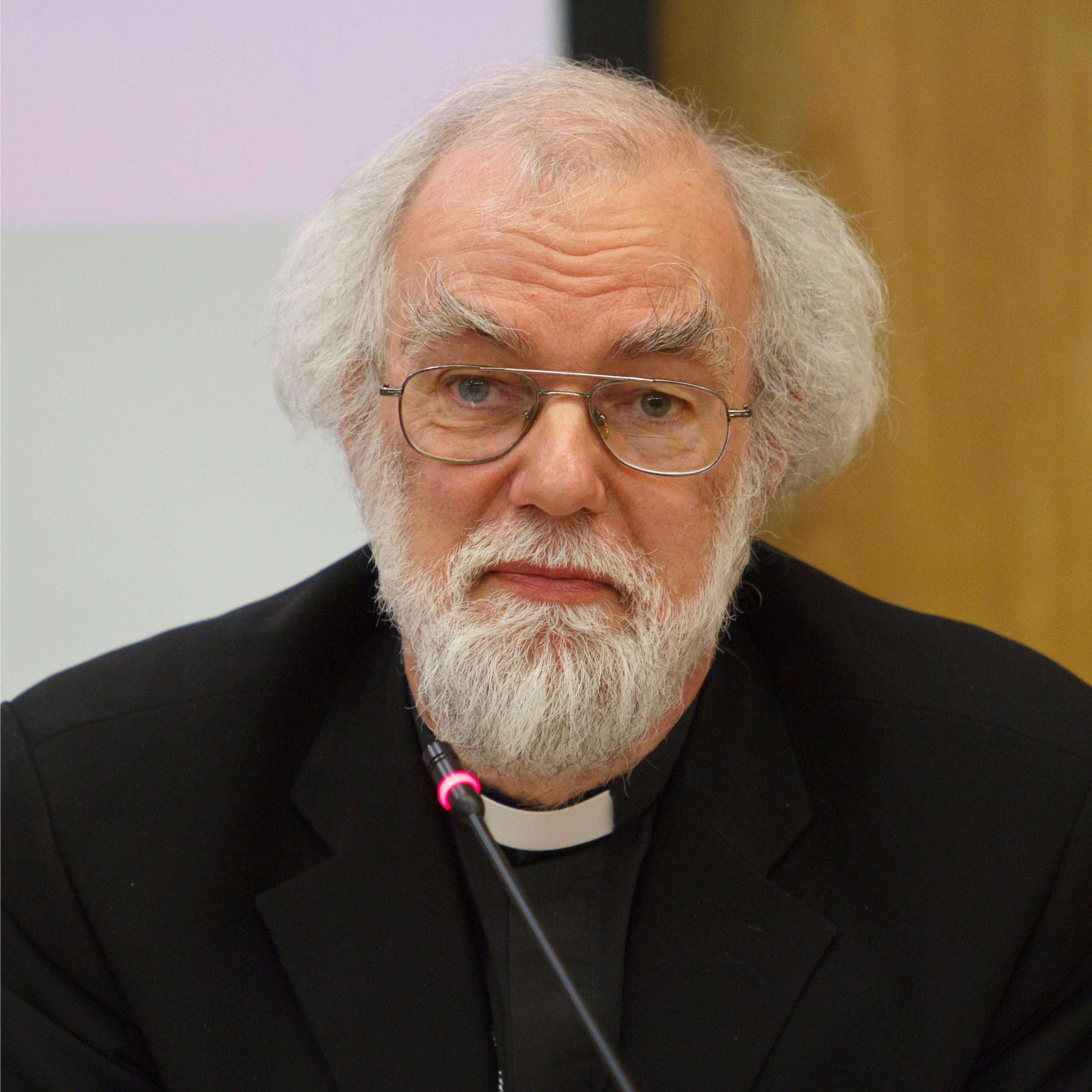The Most Reverend and Right Honourable Rowan Douglas Williams, FBA, (born 14 June, 1950) is the Anglican Archbishop of Canterbury, a theologian, poet and lecturer.

Rowan Williams was born in Swansea, Wales, into a Welsh-speaking family. He was educated at Dynevor School, Swansea, at Christ's College, Cambridge, and at Christ Church and Wadham College, Oxford. He has taught theology at the University of Oxford and the University of Cambridge, where he was Dean of Clare College.
In 1991 he was elected Bishop of Monmouth, and in 1999 he was made Archbishop of Wales. In 2002 he was announced as the successor to George Carey as Archbishop of Canterbury in the Church of England and, therefore, leader of the Anglican Communion, even though technically he was not even a member of the Church of England, but the (non-established) Church in Wales. He was enthroned on 27 February 2003.
Williams's selection as Archbishop was controversial; some evangelical Anglicans regard his opinions on the ordination of women as bishops and on homosexuality as excessively liberal. Although it is a commonly held belief that his theology is otherwise fairly orthodox, a number of his own publications reveals some significant deviations on central doctrinal issues such as revelation, sin and salvation.
Williams has been criticised in certain circles for his embrace of various tendencies which are considered by some to be "pagan". He courted controversy in August 2002 when he was inducted into the Gorsedd of Bards, a pseudo-ancient Welsh honorary order which involves "druidic" ceremonies but is not explicitly religious, and in March 2004, in a speech at Downing Street and in an article published in The Guardian, he praised Philip Pullman's trilogy His Dark Materials, which was described by the Association of Christian Teachers as "shameless blasphemy" and by the Catholic Herald as "fit for the bonfire".
In the autumn of 2003 he wrote a foreword for a book of the lyrics of the Incredible String Band (who had been influenced by pre-Christian British nature-based spirituality, and some of whose members at one point embraced Scientology); this has been cited by some as proof of the idea that British hippie culture was not as antithetical to establishment institutions as it may have seemed, a view held particularly by the late writer Ian MacDonald.
In March 2004 he criticised the ITV television series Footballers' Wives for representing what he saw as the immorality of much contemporary British life, claiming that it reflected "a world in which charity and fairness, generosity, a sense of perspective about yourself are all swept aside."
On 30 June 2004, together with David Hope, Archbishop of York, and on behalf of all 114 Anglican bishops, he wrote to Tony Blair, expressing deep concern about UK government policy and criticising the coalition troops' conduct in Iraq. The letter cited the abuse of Iraqi detainees, which was described as having been "deeply damaging" - and stated that the government's apparent double standards "diminish the credibility of western governments". (BBC) (The Scotsman)
In September 2004 he admitted that his faith had been tested by the Beslan hostage crisis, in which over 300 people were killed in a terrorist attack on a school in southern Russia. [1]
| Preceded by: George Leonard Carey |
Archbishop of Canterbury | Followed by: in office |
External links
- http://wales.anglican.org/archbishop/
- http://www.archbishopofcanterbury.org/
- http://www.canterbury-cathedral.org/
- http://www.latimertrust.org/theology-rowanwilliams.htm Criticisms of the Archbishop's theology